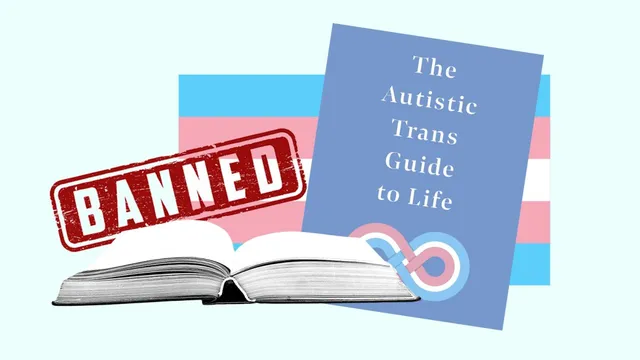
Kent council bans transgender books from children's libraries
2025-07-04 16:41- Kent County Council has decided to remove all transgender-related books from children's library sections.
- This action was triggered by complaints from a resident about such materials in libraries.
- The move has sparked significant backlash from LGBTQ+ advocates, emphasizing concerns about censorship and its effect on children's acceptance of diverse identities.
Express your sentiment!
Insights
In Kent, England, local authorities have recently made a controversial decision to remove all transgender-related literature from the children's sections of public libraries. This decision was announced by Linden Kemkaran, the leader of Kent County Council, who proclaimed this move a 'victory for common sense' on social media. The action followed a complaint from a resident regarding the presence of what they termed 'trans ideological material' in the children's library section, prompting immediate scrutiny. Councillor Paul Webb, responsible for community and regulatory services, confirmed that instructions were issued for the immediate removal of these materials, stating that children should not be exposed to concepts about being born in the wrong body. While the books will not be completely eliminated, they are set to be relocated to sections deemed more appropriate for adult audiences. Critics argue that this decision sends a harmful message to LGBTQ+ youth, suggesting that their identities are not valid. Erin Strawbridge, manager of The Folkestone Bookshop, an LGBT+ bookshop in the region, expressed her concern on BBC Radio Kent, claiming that such censorship does not prevent learning but instead isolates children who may need support, potentially exacerbating mental health issues among these young individuals. The official stance of the Kent County Council is to ensure that children are protected from adult content in libraries. Their statement emphasized the commitment to maintaining age-appropriate literature in children’s areas, confirming that adult transgender literature would be segregated to prevent access by young library patrons. This decision has ignited a broader conversation about the role of libraries in supporting diverse voices and the ethical implications of censorship in educational environments. As this decision unfolds, it poses significant questions about freedom of expression, the accessibility of diverse literature to children, and how communities balance parental concerns with the rights of individuals to see their identities reflected in public discourse. The discourse around this issue is likely to continue, with potential ramifications for other regions observing Kent’s actions and considering similar measures. Advocates for LGBTQ+ rights are calling for further dialogue and protective measures against such censorship, asserting the need for inclusive literature to foster acceptance and understanding among young readers.
Contexts
The impact of censorship on the mental health of LGBTQ+ youth is a significant concern that requires urgent attention and action. Censorship can manifest in various forms, including the suppression of information related to sexual orientation and gender identity, as well as the stigmatization of LGBTQ+ individuals within media, education, and social environments. This repression contributes to feelings of isolation, anxiety, and depression among LGBTQ+ youth, who often need resources, representation, and support to navigate their identities in a society that may be hostile or unaccepting. By restricting their access to relevant information and diverse narratives, censorship not only diminishes the visibility of LGBTQ+ communities but also impairs the mental well-being of young people who may struggle with self-acceptance and societal pressures. Research indicates that LGBTQ+ youth are disproportionately affected by mental health challenges compared to their heterosexual and cisgender peers. The internalization of negative societal messages, compounded by stigmatization and marginalization, can lead to higher rates of suicidal ideation, self-harm, and mental health disorders among this demographic. Censorship exacerbates these issues by silencing voices that advocate for acceptance and diversity, further entrenching negative stereotypes and limiting the resources available for LGBTQ+ youth. When young people are unable to see positive representations of themselves in media or literature, it prevents them from forming healthy identities and may drive them into more profound despair, leading to dire consequences for their mental health. In addition, educational institutions play a crucial role in shaping the environment in which LGBTQ+ youth grow up. When schools implement policies that restrict discussions around sexual orientation or gender identity, they inadvertently create a culture of silence that can be detrimental to students' mental health. LGBTQ+ youth may feel alienated or unwelcome in an atmosphere where their experiences are invalidated, leading to diminished academic performance and increased absenteeism. Conversely, fostering inclusive environments through comprehensive sex education that includes LGBTQ+ topics can promote resilience and emotional well-being by supplying young people with the necessary tools to understand and advocate for themselves. Addressing the mental health crisis among LGBTQ+ youth necessitates a commitment to confronting censorship in all its forms. Advocates and policymakers must support initiatives that enhance access to affirming resources, ensure representation in media and education, and create safe spaces for dialogue. Mental health services tailored to the needs of LGBTQ+ individuals, combined with anti-censorship efforts, can significantly mitigate the adverse effects of censorship, fostering a generation of young people who are empowered to embrace their identities and seek help. In doing so, society has the potential to promote mental health equity, ensuring that all youth, regardless of their sexuality or gender identity, can thrive.